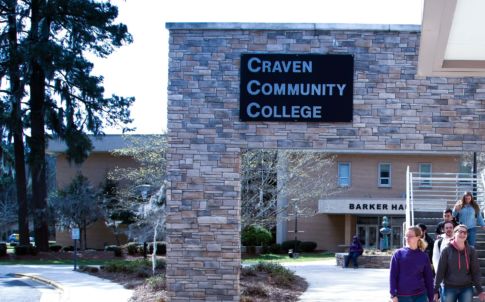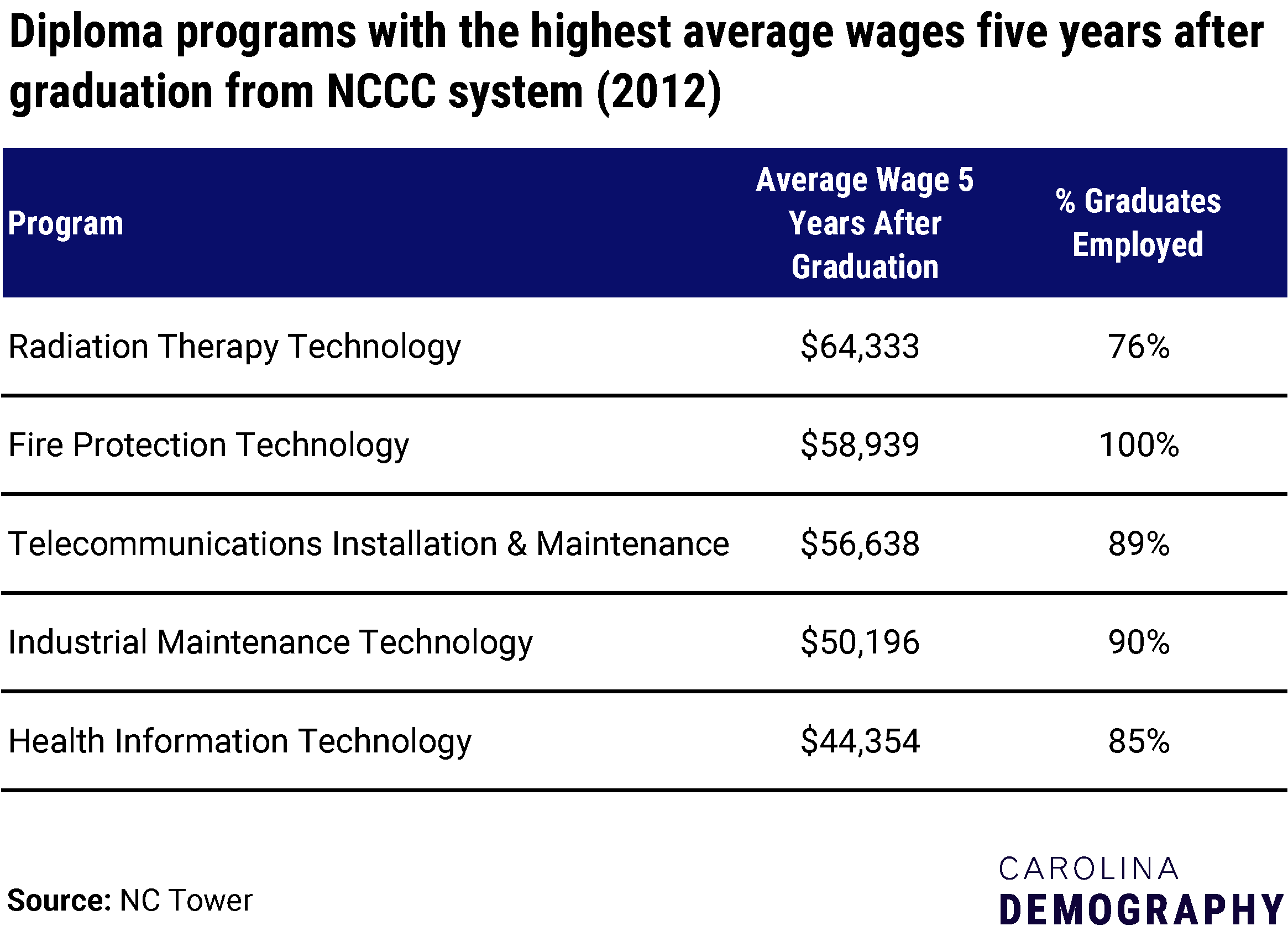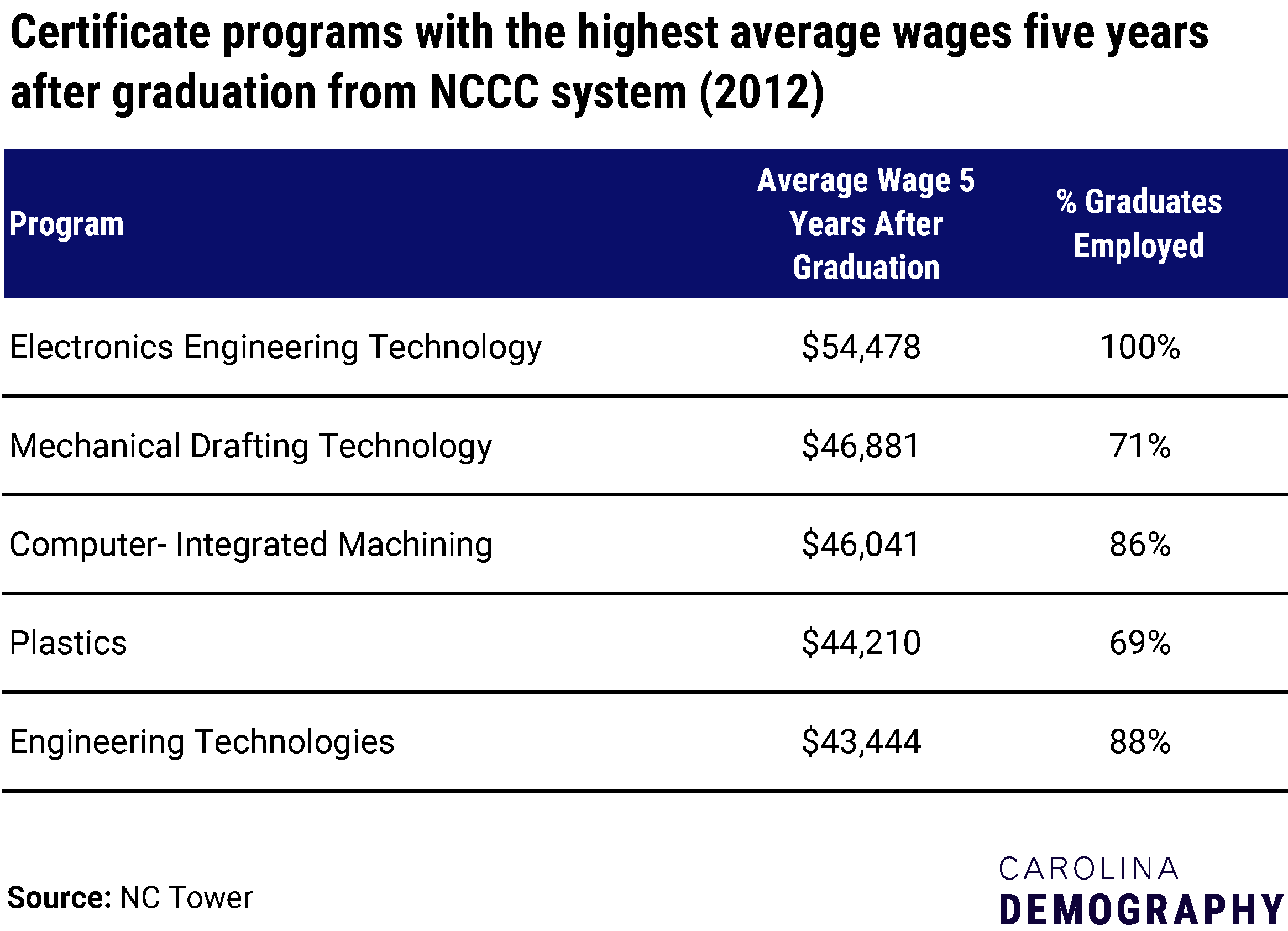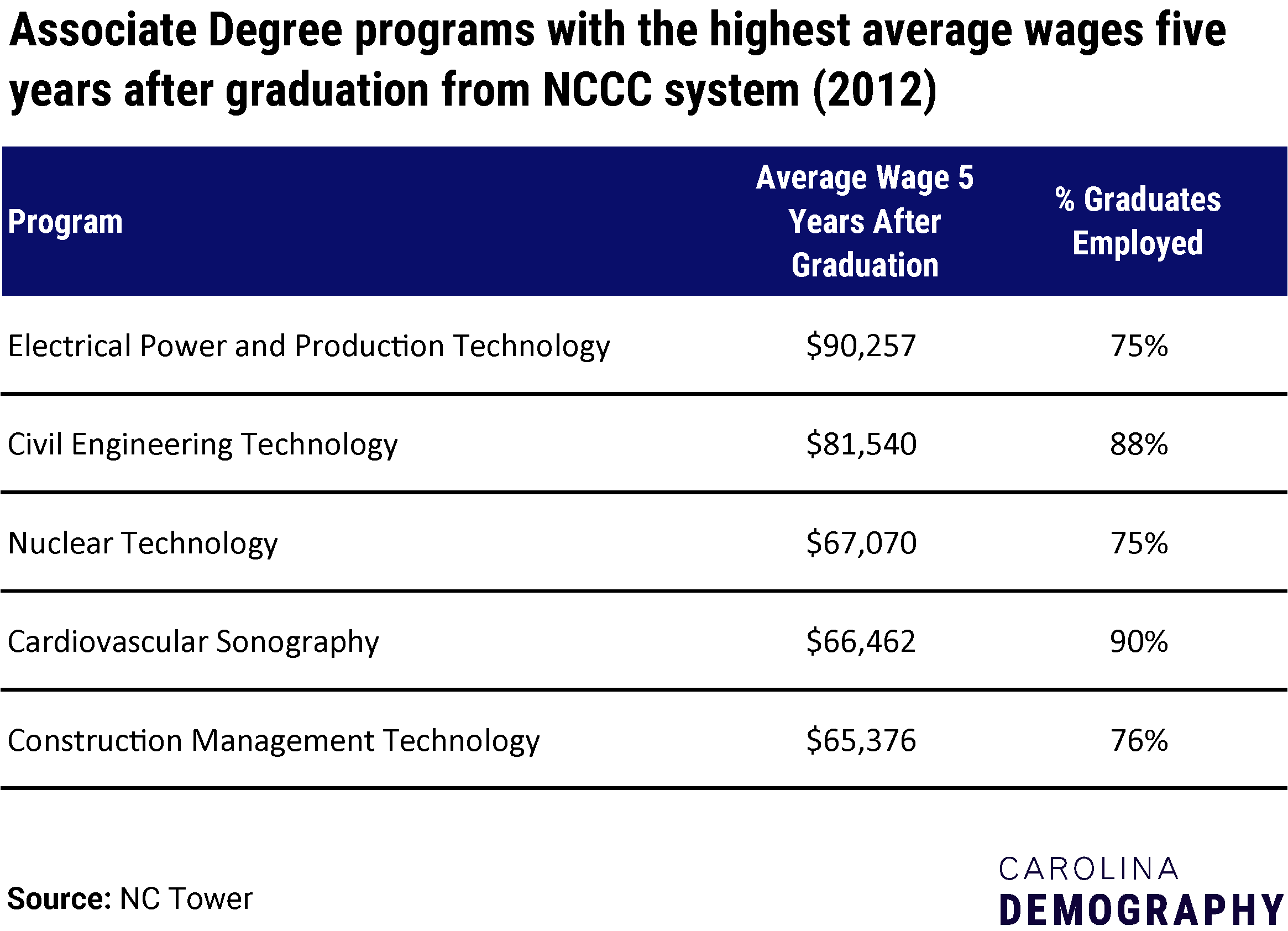Which NC community college degree program graduates have the highest average wages after five years?
A look at the data

One of many decisions that students transitioning from high school to postsecondary education are faced with is what program of study and credential to pursue. This can be challenging, since students are often not aware of the opportunities and salary potential associated with different careers.
The NC Tower database can provide some insight into this important question. NC Tower is a web-based data delivery system, maintained by the NC Department of Commerce, which provides aggregate information (i.e., programs of study, degrees attained, and wage/employment information) on students who attended public universities and community college in North Carolina.
Over the next two weeks, Carolina Demography will highlight some degree programs and credentials where graduates from NC institutions are making some of the highest mean salaries among their graduating cohort. We will first look at those students transitioning from North Carolina community colleges.
Earnings of community college graduates after five years
This analysis of 2012 North Carolina Community College system graduates reveals the top five degree programs, by credential type, where students earn highest average wages five years after graduation,[i] as well as the percentage of graduates with this degree who are employed in North Carolina.
It is important to note that this data reflects those individuals employed in North Carolina and does not include graduates who have left the state and are employed elsewhere. The credential types highlighted here are diploma, certificate, and associate degree.
Typically, a certificate is a credential offered after completing a program in a specialized or technical field, such as HVAC repair, or as a credential required by a licensing board. A diploma is similar to a certificate, but is frequently more in-depth than a certificate. Finally, an associate degree is frequently the most in-depth degree a community college offers, and requires more credits than other credentials.



Overall the highest average wages 5 years after graduation were earned by graduates with an associate degree, with the highest ($90K) going to Electrical Power and Production Technology graduates and the second highest ($82K) going to Civil Engineering Technology graduates.
Graduates with postsecondary diploma degrees tended to have the second highest wages, led by Radiation Therapy Technology graduates at $61K. Credential recipients had wages that were slightly lower, with the highest average wages earned by recipients of Electronics Engineering Technology certificate earners ($52k). While choosing a career is a complex and personal decision, information on wages and percent employed can inform that decision.
[i] Wages have been adjusted for inflation to June 2019 dollars using the CPI Inflation Calculator.
Need help understanding population change and its impacts on your community or business? Carolina Demography offers demographic research tailored to your needs.
Contact us today for a free initial consultation.
Contact UsCategories: Education, NC in Focus
Tags: community colleges, educational attainment, North Carolina, postsecondary attainment

The Center for Women’s Health Research (CWHR) at the University of North Carolina School of Medicine released the 12th edition of our North Carolina Women’s Health Report Card on May 9, 2022. This document is a progress report on the…

Dr. Krista Perreira is a health economist who studies disparities in health, education, and economic well-being. In collaboration with the Urban Institute, she recently co-led a study funded by the Kate B. Reynolds Foundation to study barriers to access to…

Our material helped the NC Local News Lab Fund better understand and then prioritize their funding to better serve existing and future grant recipients in North Carolina. The North Carolina Local News Lab Fund was established in 2017 to strengthen…
Your support is critical to our mission of measuring, understanding, and predicting population change and its impact. Donate to Carolina Demography today.